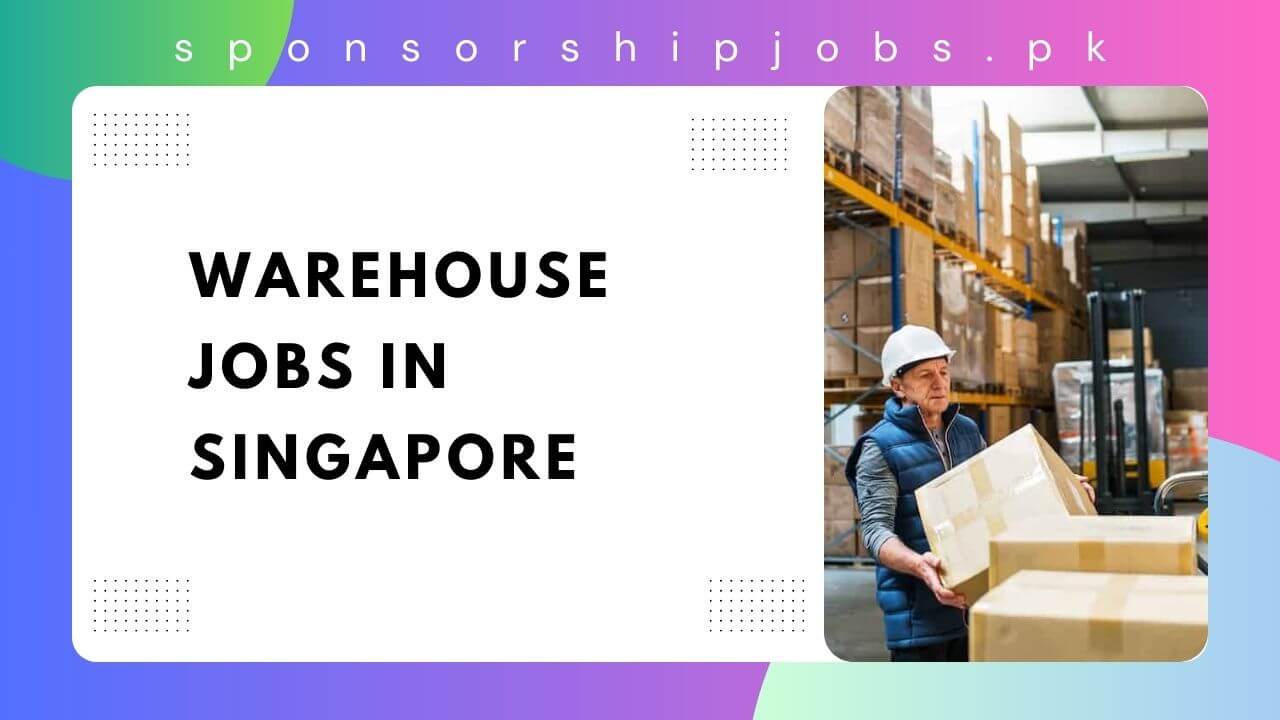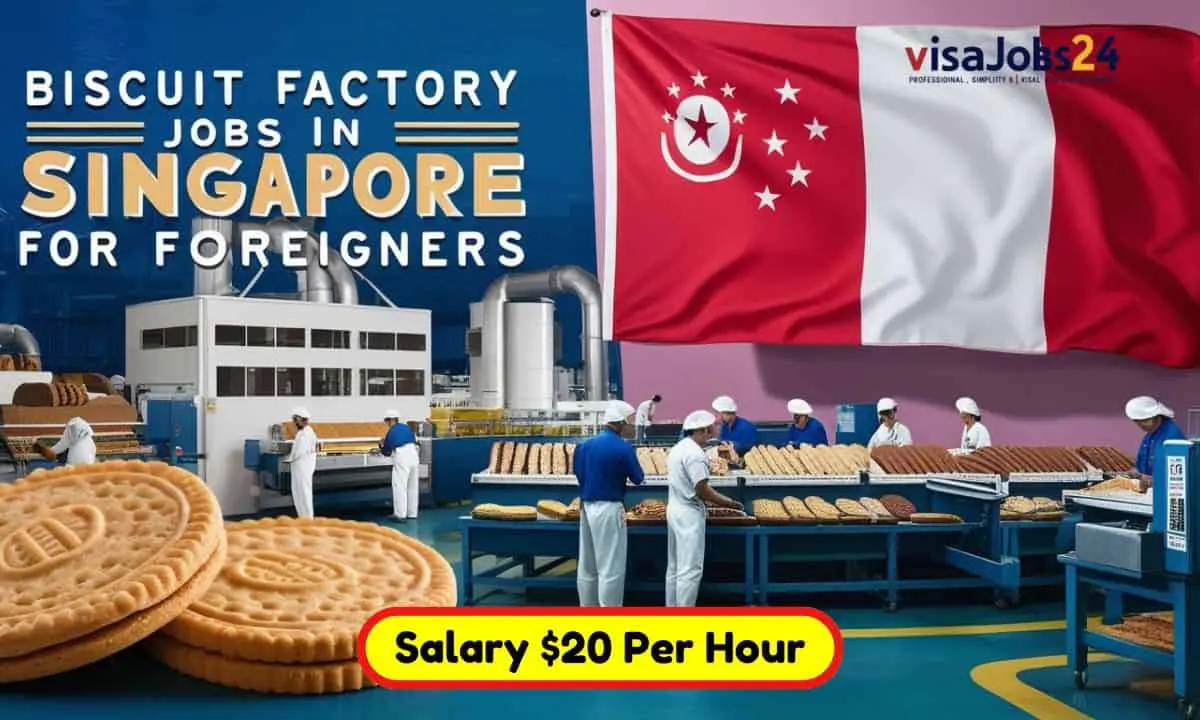Understanding Singapore's Visa Sponsorship Landscape in 2025
Singapore remains a highly desirable destination for professionals seeking international career opportunities. The country's robust economy and diverse industries attract talent from around the globe. Securing a job with visa sponsorship in Singapore can be a complex process. This guide aims to clarify the landscape in 2025.
Navigating Singapore's Work Visa Options
Singapore offers various work visa options, each tailored to different skill levels and professional backgrounds. Understanding these options is crucial for a successful application. Here are some key work visas:
Employment Pass (EP)
The Employment Pass (EP) is designed for foreign professionals in managerial, executive, or specialized roles. It requires a job offer from a Singapore-based company. The minimum salary requirements have been increasing, making it essential to check the latest updates.
S Pass
The S Pass is for mid-skilled foreign employees, such as technicians. It also requires a job offer from a Singapore employer. The qualifying salary and quotas for S Pass holders are subject to changes.
EntrePass
The EntrePass is for foreign entrepreneurs who want to start and operate a business in Singapore. It requires a registered company with innovative technologies or venture backing. This pass has specific criteria regarding the age of the company and the entrepreneur's background.
Personalised Employment Pass (PEP)
The Personalised Employment Pass (PEP) is for top-tier executives with high salaries. It offers more flexibility, allowing job changes without needing a new pass. However, it has a fixed term and cannot be renewed.
Tech.Pass
The Tech.Pass is for leading tech experts, entrepreneurs, and leaders. It allows pass holders to engage in various activities within Singapore's tech ecosystem. This pass is administered by the Singapore Economic Development Board (EDB).
Overseas Networks & Expertise (ONE) Pass
The ONE Pass is designed to attract top talent in various fields. It offers more flexibility, allowing holders to work for multiple companies. Applicants must demonstrate a high salary or outstanding achievements in their respective fields.
Work Permit for Foreign Workers
The Work Permit is for semi-skilled or unskilled workers in sectors like construction and manufacturing. It has no minimum salary requirement, but it's tied to specific sectors and countries.

Key Changes to Singapore's Work Visa Policies in 2025
Several key changes to Singapore's work visa policies are expected in 2025. These changes aim to ensure a high-quality workforce. It also ensures that foreign workers complement the local talent pool.
Increased Salary Requirements for EP and S Pass
The minimum salary requirements for both the EP and S Pass are set to increase. These adjustments will affect new applications and renewals, so it is important to stay informed. For instance, older EP holders will need to meet progressively higher salary thresholds.
The Complementarity Assessment Framework (COMPASS)
The Complementarity Assessment Framework (COMPASS) is a points-based system for EP applications. It assesses various factors, such as salary, qualifications, and the company's diversity. This framework ensures that EP holders contribute to Singapore's economy. It also ensures that they complement the local workforce.
Quotas for S Pass Holders
Quotas for S Pass holders exist in specific sectors, limiting the number of foreign workers a company can hire. These quotas can vary depending on the industry. It is important to check the latest regulations.
Identifying Companies That Sponsor Visas in Singapore
Finding a company that offers visa sponsorship is a critical step. Some industries are more likely to sponsor foreign workers than others. Here are some key sectors:
Major Industries Offering Visa Sponsorship
Singapore's major industries, such as technology, finance, and healthcare, often sponsor visas. These sectors have a high demand for skilled professionals. They are also more likely to have the resources to navigate the visa process.
Tech Companies Sponsoring Visas
Tech companies are major employers of foreign talent in Singapore. Companies like TikTok, Google, and Shopee frequently sponsor visas. These companies often seek software engineers, data scientists, and other tech specialists. TikTok is one of the companies that is actively hiring in Singapore.
Finance Companies Sponsoring Visas
Singapore's finance sector is another significant employer of foreign professionals. Banks like Standard Chartered and consulting firms like PwC often sponsor visas. These companies typically hire for roles in finance, accounting, and consulting.
Healthcare Companies Sponsoring Visas
Healthcare companies, including hospitals and research institutions, also offer visa sponsorship. Changi General Hospital is one of the hospitals that sponsors work visas. There is a demand for doctors, nurses, and medical researchers in Singapore.
Other Industries
Other industries, such as manufacturing, engineering, and hospitality, may also offer visa sponsorships. It is important to research companies within these sectors to identify potential opportunities.
How to Find Visa Sponsorship Jobs in Singapore
Finding a job with visa sponsorship requires a strategic approach. Here are several methods to help you in your search:
Utilizing Job Boards
Job boards like Jobstreet and Jobscentral are valuable resources. These platforms list jobs with visa sponsorship opportunities. You can use keywords like "visa sponsorship" or "foreigner jobs" to refine your search.
Leveraging LinkedIn
LinkedIn is a great platform for job searching and networking. Many companies post job openings with visa sponsorship on LinkedIn. It is important to optimize your profile and connect with recruiters.
Networking Strategies
Networking is essential for finding job opportunities. Attend industry events, join professional groups, and connect with people in your field. Personal connections can often lead to job opportunities.
Direct Company Applications
Directly applying to companies can be effective, especially if you have specific companies in mind. Visit their websites and look for open positions. You can also try reaching out to HR departments to inquire about visa sponsorship.

Tips for a Successful Singapore Work Visa Application
A successful Singapore work visa application requires careful planning and attention to detail. Here are some tips to help you navigate the process:
Meeting Eligibility Criteria
Ensure you meet all eligibility criteria for the visa you are applying for. This includes salary requirements, educational qualifications, and work experience. Double-check the latest requirements on the Ministry of Manpower (MOM) website.
Preparing Necessary Documents
Prepare all necessary documents, such as your passport, educational certificates, and employment records. It is important to have all your documents ready before you start your application. This includes getting all documents translated into English if necessary.
Understanding the Application Process
Familiarize yourself with the Singapore work visa application process. This includes online submissions, interviews, and medical check-ups. The process can be complex, so it is best to be prepared.
Working with a Relocation Service Provider
Consider working with a relocation service provider. These professionals can assist with the visa application process. They can also help with relocation logistics, which can be very useful.
Key Takeaways for Securing Visa Sponsorship in Singapore in 2025
- Understand Visa Options: Familiarize yourself with the different types of work visas in Singapore.
- Stay Updated on Policy Changes: Keep track of the latest changes in visa policies, especially salary requirements and quotas.
- Target Key Industries: Focus on industries that are known to sponsor visas, such as tech, finance, and healthcare.
- Utilize Job Search Platforms: Use job boards, LinkedIn, and networking to find job opportunities.
- Prepare Thoroughly: Meet all eligibility criteria, prepare your documents, and consider professional assistance.
By understanding the visa landscape and employing effective strategies, you can increase your chances of securing a visa sponsorship and pursuing a rewarding career in Singapore in 2025.
